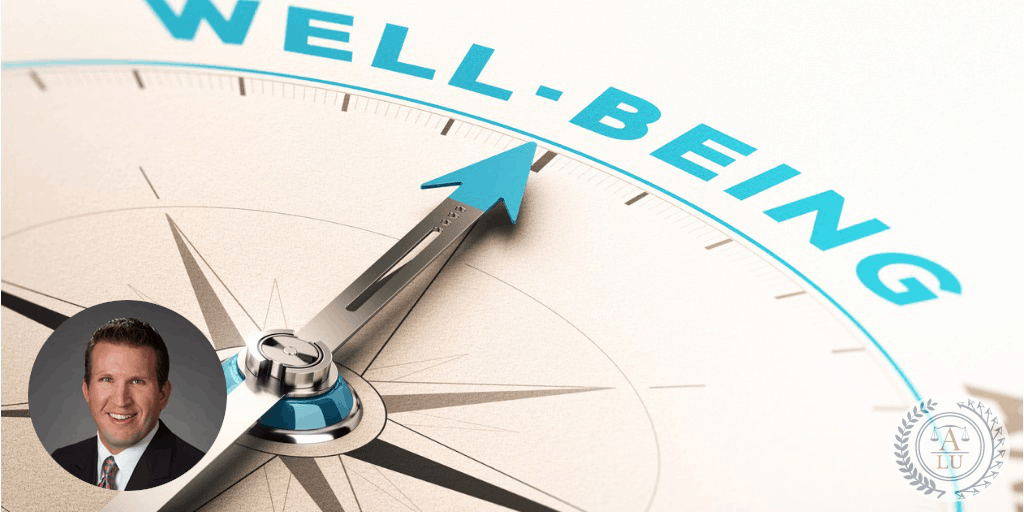October is National Depression Awareness Month. If you’re a law student who suffers from depression or severe anxiety, you’re not alone.
While all fields of study are admirable, we know that law is one of the most challenging. It’s right up there with medical school and engineering. Law school is so challenging, in fact, that recent studies have found a staggering number of students who pursue this career suffer from anxiety, depression, bipolar disorder, and even symptoms of post-traumatic stress disorder (PTSD).
Who’s the Culprit?
The guilty in this case is most often competition.
Alex Chang, a former Harvard graduate, said it best in his TED Talk, “We can’t all be number ones anymore.” Students bent on attending law school are used to receiving the highest grades, excelling in several extracurricular activities, and being number one in their high schools. When they graduate at the top of their class and then go to law school, suddenly it’s a whole new playing field.
The rigors of law school and the mental health issues most students face can all be traced back to the drive to do better, to beat the competition, to continue to be the best. Taking this mentality too far is one of the things that often leads to adverse consequences, the most common of these being mental health problems.
Even though this may seem especially true for students attending an Ivy League school, it’s rampant all across the board. No matter where aspiring lawyers plan to attend, the stress is present at every university and can be overwhelming.
The Earlier, the Better
Onset of negative symptoms from stress can occur during the first year of law school, the last, or any time in-between. Some law students manage their mental health successfully, only to succumb to the pressure of studying for the bar exam. No matter if it’s general anxiety or depression, once the first signs start to show up, there are steps that need to be taken to prevent students from spiraling down.
According to a 2016 survey of law student well-being, 42% of law students felt as though they needed counseling for mental health issues, but only half of those students actually sought the care of a mental health professional.
Part of this is because students didn’t know who to turn to. They didn’t feel comfortable approaching their professors or going to the school’s counseling center.
What to Look For
Stress is a part of life, especially for law students. They often dismiss the signs of something worse as the same mental anguish everyone else goes through.
But that is not always the case. These are some common symptoms, according to the Centers for Disease Control (CDC).
Signs of Depression
- Feeling sad or anxious often or all the time
- Not wanting to do activities that used to be fun
- Feeling irritable‚ easily frustrated or restless
- Having trouble falling asleep or staying asleep
- Waking up too early or sleeping too much
- Eating more or less than usual or having no appetite
- Experiencing aches, pains, headaches or stomach problems that don’t improve with treatment
- Having trouble concentrating, remembering details or making decisions
- Feeling tired‚ even after sleeping well
- Feeling guilty, worthless or helpless
- Thinking about suicide or hurting yourself
Signs of Anxiety
- Feeling restless, wound-up or on-edge
- Being easily fatigued
- Having difficulty concentrating; mind going blank
- Being irritable
- Having muscle tension
- Difficulty controlling feelings of worry
- Sleep problems, such as difficulty falling or staying asleep, restlessness or unsatisfying sleep
- Heart palpitations, a pounding heartbeat or an accelerated heart rate
- Sweating
- Trembling or shaking
- Sensations of shortness of breath, smothering or choking
- Feelings of impending doom
- Feelings of being out of control
If even one of these symptoms is experienced on a daily basis for a long period of time, students should seek professional help right away, such as talking to a university counselor or their primary care physician.
Other Forms of Help
Professional help is always the number one priority if you’re feeling symptoms of anxiety or depression. If you would like additional resources to a therapist or primary care physician, consider these options.
Mentors
Just knowing that they’re not the only ones having a hard time balancing sleep with homework and a social life goes a long way toward students improving and maintaining a healthy mindset. When there’s competition every which way they look, students are reluctant to admit to how much pressure they feel.
Ignoring the symptoms and putting on a happy face is not healthy. Mentors are an excellent way to provide support to law students. Having a mentor who’s been through it all or is still in recovery is the ideal candidate. Mentors can help students navigate the academic sector and point them in the right direction when stress starts to create issues with their mental health.
Classrooms and Professors
In addition to the competitive drive, classroom practices are big stressors for law students because professors are interacting directly with them and influencing their mentalities.
According to professor Larry Krieger and scientist Kennon Sheldon, “…hierarchical markers of worth such as comparative grading, mandatory curves, status-seeking placement practices, lack of clear and timely feedback, and teaching practices that are isolating and intimidating” are all factors that can harm students’ mental health.*
These components mess with students’ heads and plant seeds of doubt that only grow with time and may eventually bloom into anxiety and depression.
There is a good reason for creating a competitive environment. It pushes students to put their best feet forward and shows them what they’re capable of accomplishing. Having a thick skin, critical thinking skills, a strong work ethic, and high standards are a few of the qualities that make great lawyers.
It’s a tough world, and students need to be tough with it. Finding the balance between hard work and strong mental health is where it gets tricky. Taking the competition too far is how law students suffer from anxiety and depression.
It Doesn’t Stop
Alex Chang admitted that all 4 years at Harvard were equally tough. It wasn’t just freshman year that was challenging, and while he was thankful for his time there, he also asked students to seriously think about where they wanted to go and which university would give them the education they needed.
Even after law school, when students enter their first jobs as full-fledged lawyers, severe stress is still present. Instead of academic essays and professors, it’s paperwork and bosses. There’s little room for error when it comes to practicing the law, but as Alex Chang mentioned, when you’re learning in law school, “It’s okay for you to speak up and say that you are struggling.”
Something Can Be Done About It
Chang emphasized that everyone is just as stressed as you are, whether they voice it or not. And that’s okay. Making the perfect grade isn’t as important as harming your character or mental well-being. There are more resources than you might think to help combat severe stress.
October is National Depression Awareness Month, and Abraham Lincoln University law students are encouraged to learn how to approach professors with concerns and where to go when symptoms of anxiety or depression begin to occur. Professors can also learn how to spot the signs, talk to students and point them in the right direction.
It takes a whole village to raise a child, and it takes a whole university to raise a lawyer with the strong mind and knowledge needed to step into their future roles. But the drive for perfection isn’t worth the depression that could come with it.
* In reference to the 2016 Survey of Law Student Well-Being as discussed on Recommendations for Law Schools.
 About the Author
About the Author
Founder of Babcock Law Firm in Denver, CO, R. Mack Babcock was a member of the marines before attending the University of Iowa. There he received his Bachelor of Business Administration in Finance. He continued his education at the University of Denver and was admitted into the Colorado Bar. Several years later, he founded his own firm to defend injured individuals and currently serves as a member of the Colorado Trial Lawyers Association, the Workers’ Compensation Educational Association, the Colorado Professionals in Workers’ Compensation, and several other prominent legal associations.






